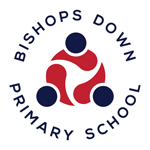English
Reading at Home
Reading Round Ups
Reading Round Up - Spring 2020
Reading Round Up - October 2021
Useful Websites for Home Learning
EYFS
- Nursery rhymes and activities for younger children in Early Years: https://www.bbc.co.uk/teach/school-radio/nursery-rhymes-songs-index/zhwdgwx
KS1
- https://youtu.be/2U3siQPtaUM - Parents' Introduction to Read, Write Inc
- Literacy games to support KS1 children: https://www.ictgames.com/mobilePage/literacy.html
- KS1 grammar and phonics games and activities: http://www.crickweb.co.uk/ks1literacy.html
KS2
- KS2 grammar games and activities: http://www.crickweb.co.uk/ks2literacy.html
General
- Phonics game plus : https://kids.classroomsecrets.co.uk/
- Phonics from sounds to full sentences: https://www.teachyourmonstertoread.com/ (Free on desktops, cost for ipads/phones)
- An educational resource support for teachers which is currently offer access to parents. All subjects covered: https://www.twinkl.co.uk/resources/parents
- 250 Free e-books for children to read, expert videos covering tricky concepts like fronted adverbials: https://www.oxfordowl.co.uk/welcome-back/for-home/reading-owl/parent-letter
- Choose your next book using this website: https://www.lovereading4kids.co.uk/
- Coverings phonics, Grammar, punctuation and spelling (as well as Maths): https://www.topmarks.co.uk/Interactive.aspx?cat=42
- British Council has a range of stories and activities to support literacy: Learn English Online | British Council
- National geographic Non fiction magazine aimed at primary school readers: https://ngexplorer.cengage.com/ngyoungexplorer/index.html
- Read poems and see videos of poets reading their work: http://poetryzone.co.uk/
- Activities, competitions, books reviews and recommendations: http://wordsforlife.literacytrust.org.uk/
- Plus: 50000 free downloadable books by genre: https://manybooks.net/?__cf_chl_jschl_tk__=b14a7e275f5f630bea16af2c255fc8bd6ed6cdf5-1584462156-0-AeOyBsD6XraURth1TlKA2DXysIuXg61TY5r3W_-VCd7jVf7kr8OaQvnQLS_xFpXfLkiQ1CKXIzMet_fqfm2aNUPACaqenQ5Ic3jWDIPvXtWC7G0wNQHApJBTLCohxgdLzsj13z1OTNWosRDYxkjXXRyTTfq_Vky3HzaunA73l_4NgDBQZdIOe5qBWGu9AxcF45MzVqwO4g69127nICISfbFZRgmgzU46W4vZnn7YGqlsEM3qbUuK9rEhMfPF1XDlD_hP_m19eUml4LO5geZcVws
Early Years Foundation Stage and Key Stage One English
At Bishops Down, we aim to promote love, confidence and intelligent curiosity in the written and spoken word. We believe that English is at the heart of our teaching and learning and essential to every area of the curriculum. It includes, Reading, Writing, Speak and Listening. It is through English that concepts are formed and we are able to make sense of the world and our place in it.
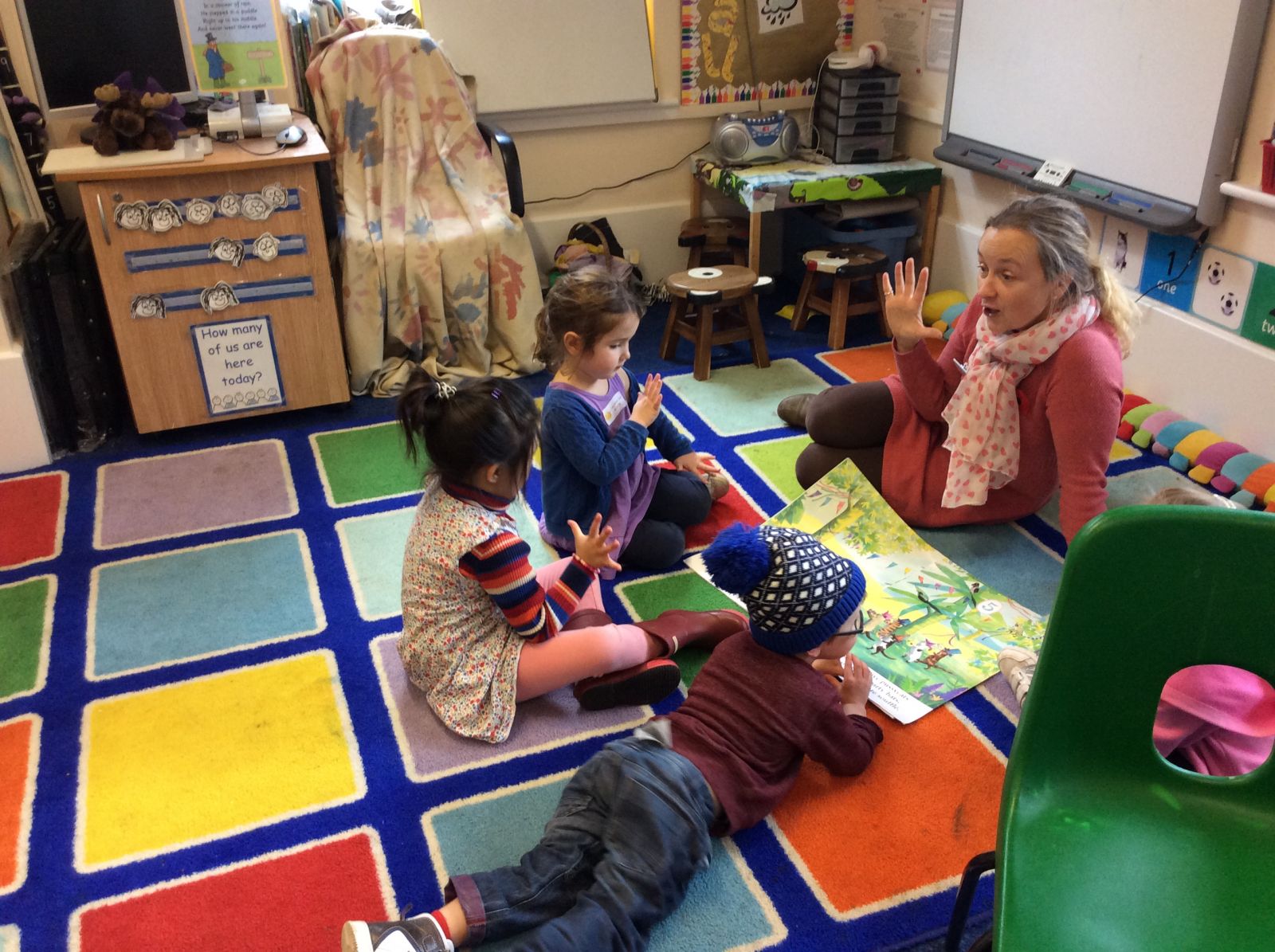
Through a range of adult led and child initiated activities such as role play and circle time. The Early Years provision provides the children with plenty of opportunities to develop their gross and fine motor skills and they are given opportunities to experiment with a variety of mark making activities. When the children are ready, they participate in activities that encourage development of their reading skills that are formally introduced in Reception. It is often in these Foundation Years that letter formation and writing emerges from the earlier days of mark making. Handwriting is practised daily throughout Key Stage One.
Daily synthetic phonics teaching is introduced in Reception following the Read Write Inc. programme where new sounds are taught accompanied by rhymes. Children practise blending and segmenting skills (Fred talk) and develop their ability to read red words (words that cannot be decoded). Throughout KS1 the children build on their phonic knowledge further and as they come to the end of the phonics programme the focus moves on to spelling. The Year One Phonics Screening Check takes place in the Summer term.
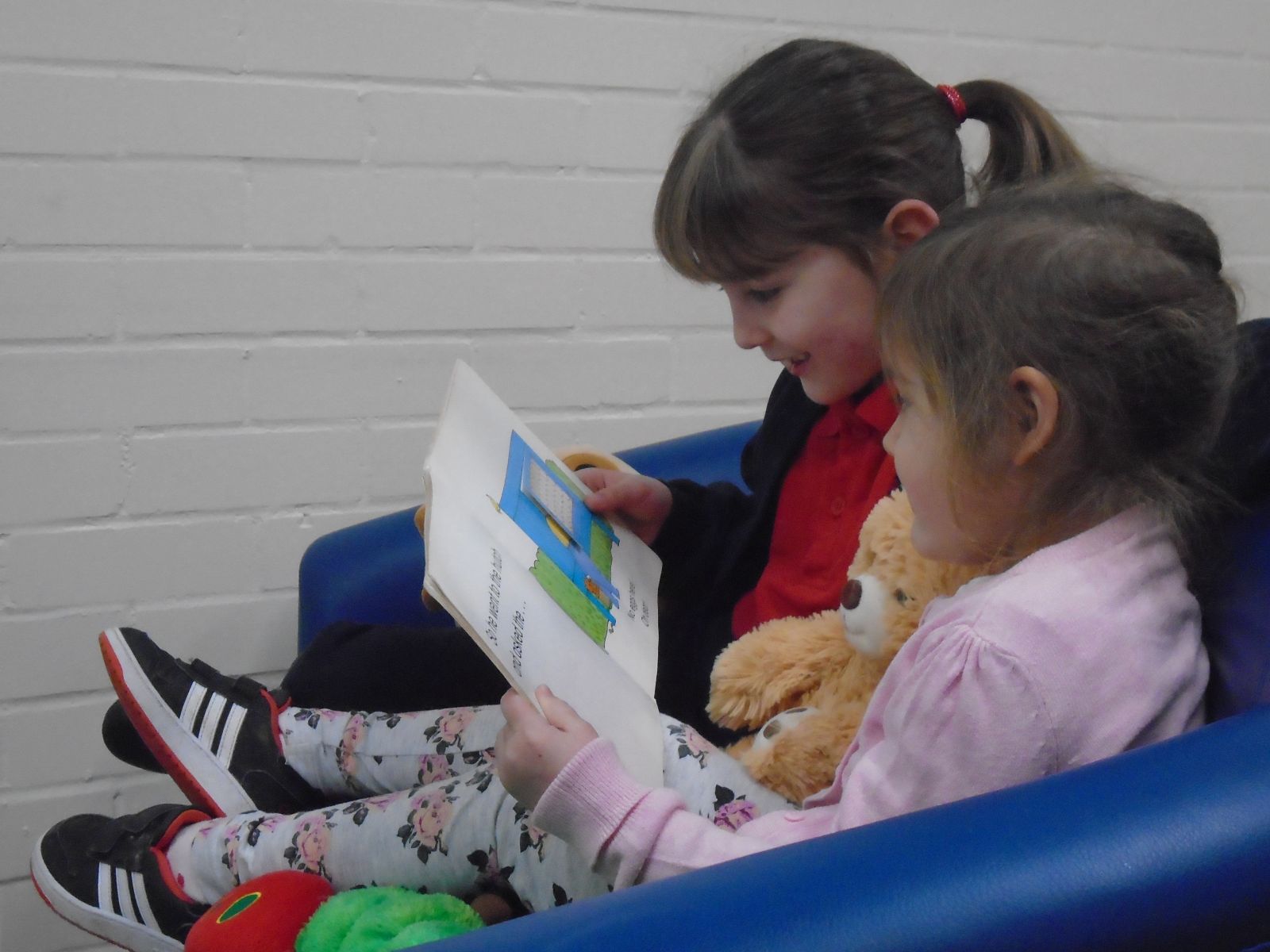 Children are taught to read in a variety of ways. Guided reading sessions take place regularly and Reading Skills lesson are taught daily using varied activities that enable the children to develop reading skills in addition to decoding such as retrieval, predicting and inference. As part of our commitment to become a reading community, the children are encouraged to read for pleasure and are motivated through a range of activities including weekly visits to the school library and a chance to read with others. In addition, the adults read to their class several times a week, purely for pleasure, to develop a love of reading. We ensure that high quality texts are used to develop children’s vocabulary, promote questioning and discussion.
Children are taught to read in a variety of ways. Guided reading sessions take place regularly and Reading Skills lesson are taught daily using varied activities that enable the children to develop reading skills in addition to decoding such as retrieval, predicting and inference. As part of our commitment to become a reading community, the children are encouraged to read for pleasure and are motivated through a range of activities including weekly visits to the school library and a chance to read with others. In addition, the adults read to their class several times a week, purely for pleasure, to develop a love of reading. We ensure that high quality texts are used to develop children’s vocabulary, promote questioning and discussion.
Grammar, Punctuation and Spelling (GPS) skills are taught daily where the children learn and develop different skills though fun, active sessions.
English skills are developed further during other areas of the curriculum (e.g. Independent Learning Activities) and enrichment opportunities (e.g. story-telling, plays, author visits, World Read Aloud Day and World Book Day) are provided to further enhance the learning.
All children and parents are encouraged to read together at home on a daily basis. Parents are informed on a weekly basis on the sounds that their children are learning and the spellings that are being learnt are sent home to practise.
At Bishops Down Primary and Nursery School we understand that all children are unique. Children that need extra consolidation and support with particular areas of the English curriculum are quickly identified and appropriate provision is put in place to support their learning.
The children are provided with high quality feedback and they respond to marking on a daily basis from year one. In the Early Years Foundation Stage feedback is given verbally. The children regularly self and peer assess which encourages them to take ownership and pride in their learning!
Our aim is that by the end of KS1, the children are enthusiastic, confident readers and writers that are ready to build on their learning as they continue their learning journey into Key Stage Two curriculum.
Key Stage Two English
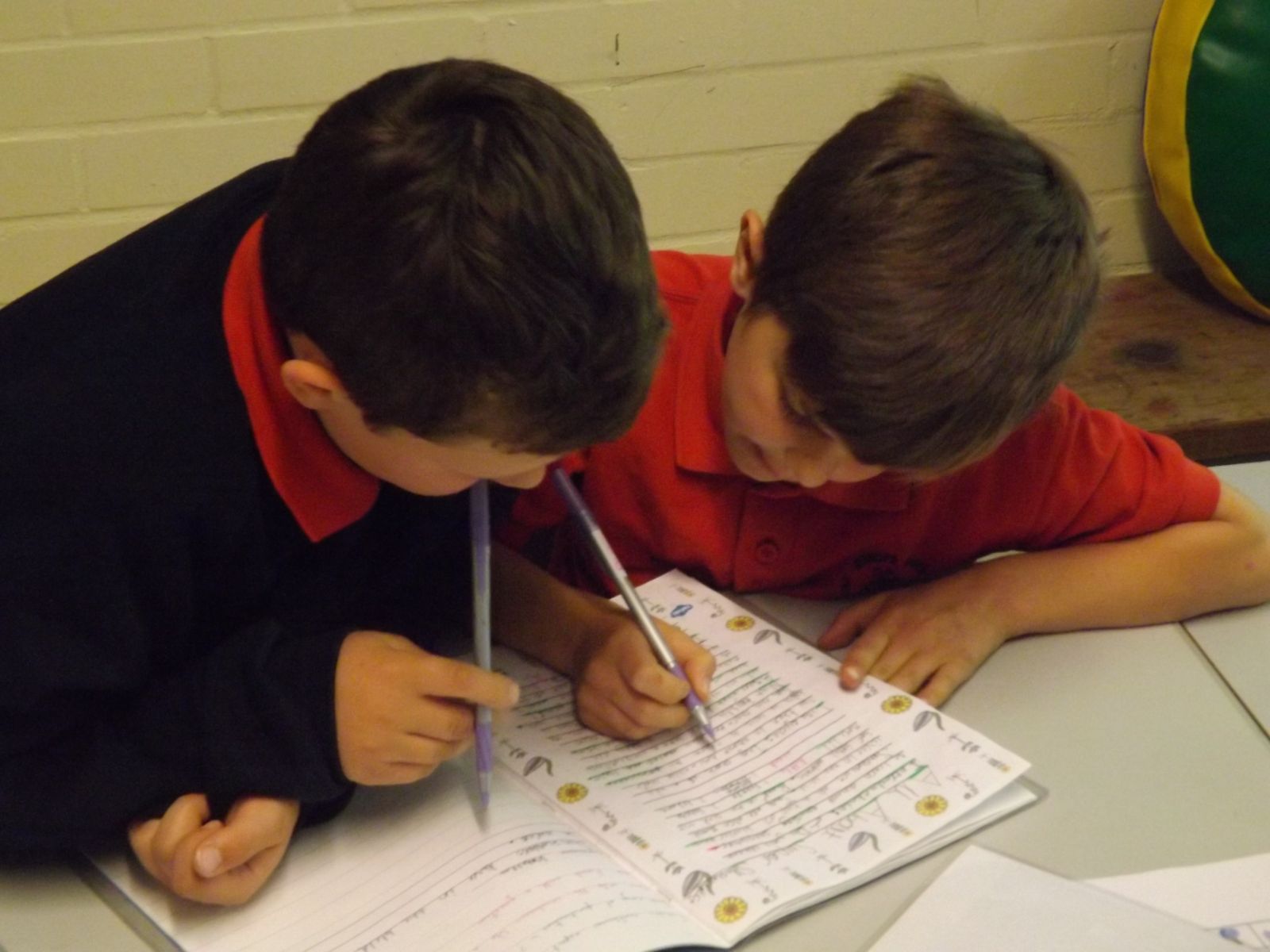
English lessons are taught through high-quality, carefully selected texts that engage and enthuse children in all year groups. Children have the opportunity to write at length through a range of genres in English lessons, thus developing skills in writing fiction and non-fiction texts. The Power of Reading enriches learning, also, through designing lessons with opportunities for drama, role-play, art and debate.
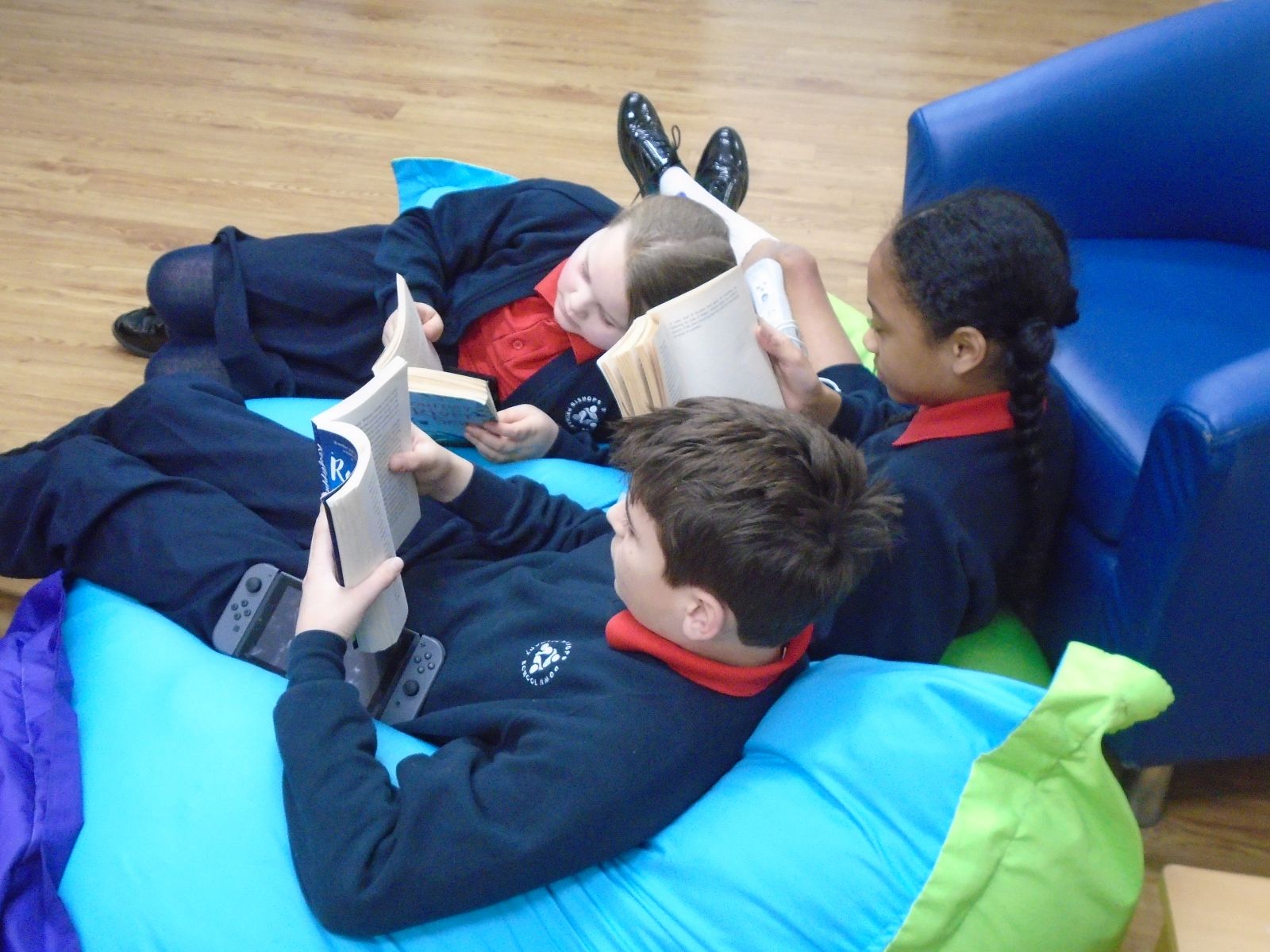 The teaching of reading is paramount to successful English teaching here at Bishops Down. Children are taught explicit reading skills every morning for thirty minutes. During this time they can read for pleasure as well as learn specific skills that make for a good reader. For example, decoding, inference, understanding vocabulary in contexts and answering specific questions orally and in writing.
The teaching of reading is paramount to successful English teaching here at Bishops Down. Children are taught explicit reading skills every morning for thirty minutes. During this time they can read for pleasure as well as learn specific skills that make for a good reader. For example, decoding, inference, understanding vocabulary in contexts and answering specific questions orally and in writing.
In line with the National Curriculum, at Bishops Down we teach grammar and spelling explicitly every day of the school week. Teachers lead spelling sessions twice weekly and grammar sessions thrice. Again, we follow high quality schemes of work: No Nonsense Spelling and No Nonsense Grammar. Both are incredibly useful tools that plan out all of the required objectives for each year group. Teachers prioritise teaching these sessions in a fun, engaging and creative way.
We value the importance of providing pupils with high quality feedback to help children progress in their learning, address misconceptions and errors, and celebrate what they have achieved. Furthermore, teachers work hard to provide children with quality written feedback in their books. Feedback is designed to celebrate the achievements of the children and move learning forward through questioning and scaffold where necessary.
Across the school, children are supported in the use of a variety of writing tools and techniques that scaffold writing in a way that is useful to the individual child. Dyslexia friendly fonts and coloured backgrounds are used in all of our Interactive Whiteboard work to increase accessibility for all children.
Here you will find all the information you need in regards to the English Curriculum. Please click on the links below to take you to each area.
- Reading for Pleasure
- Bishops Down Reading Scheme
- GPS (Grammar, Punctuation and Spelling)- Whole School Curriculum
Spelling Leaflet for Parents - October 2018
Look, Say, Cover, Write, Check Template for Spelling
Phonetic Approaches for Spelling
